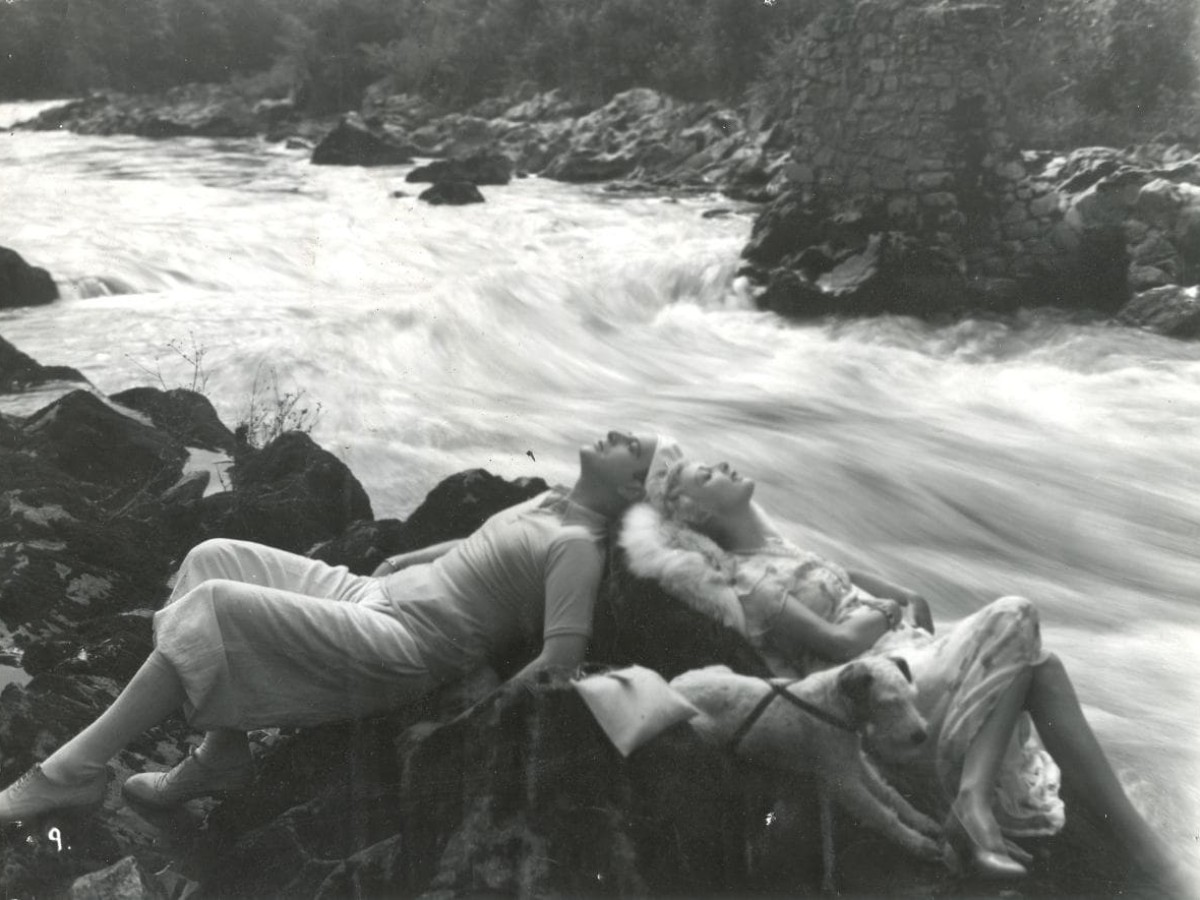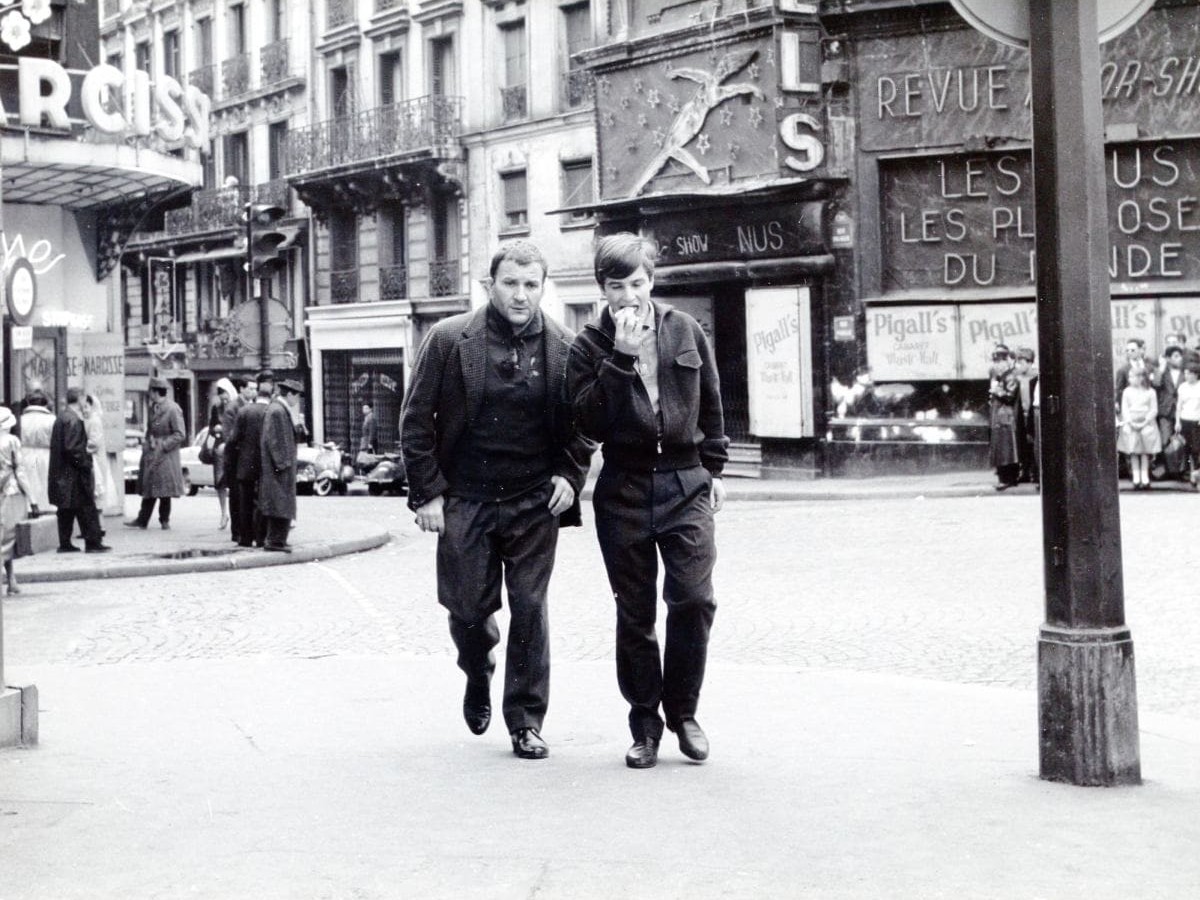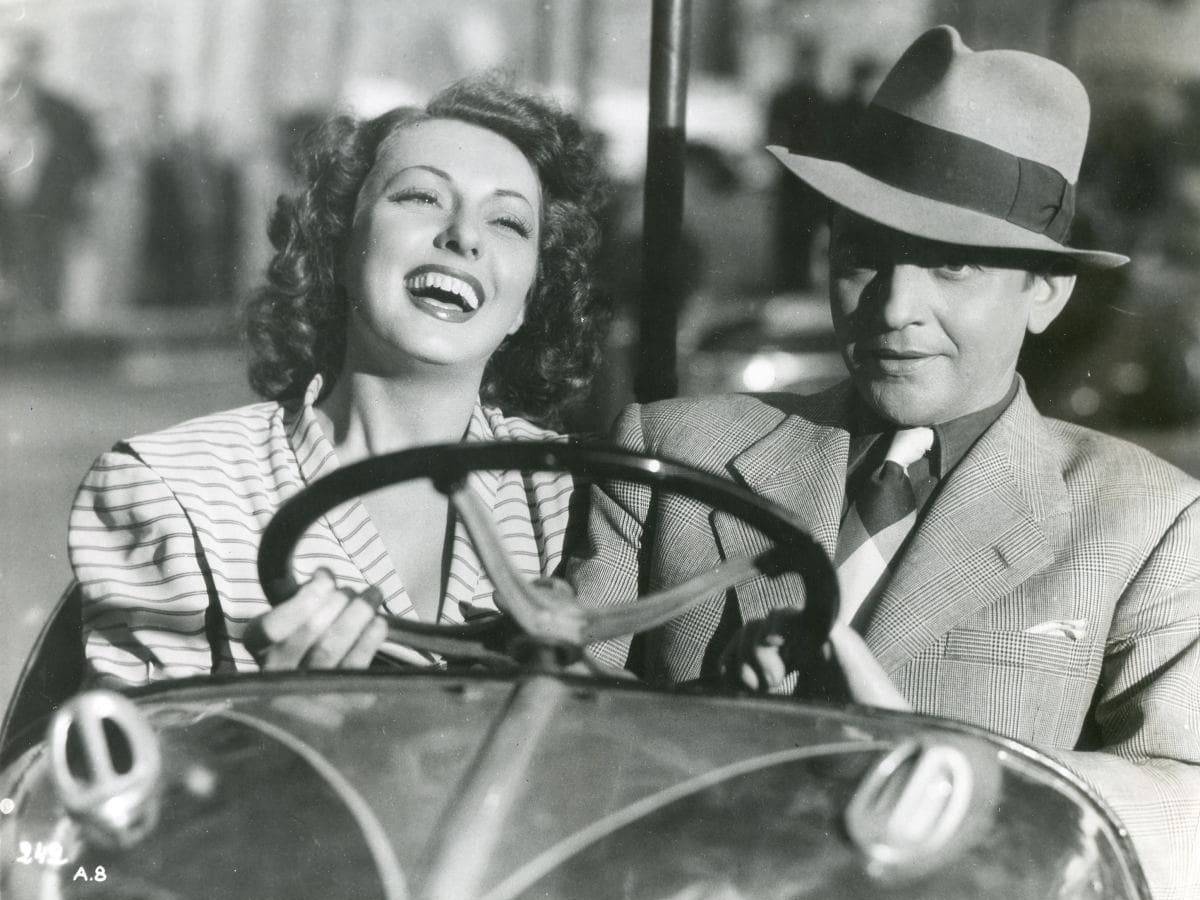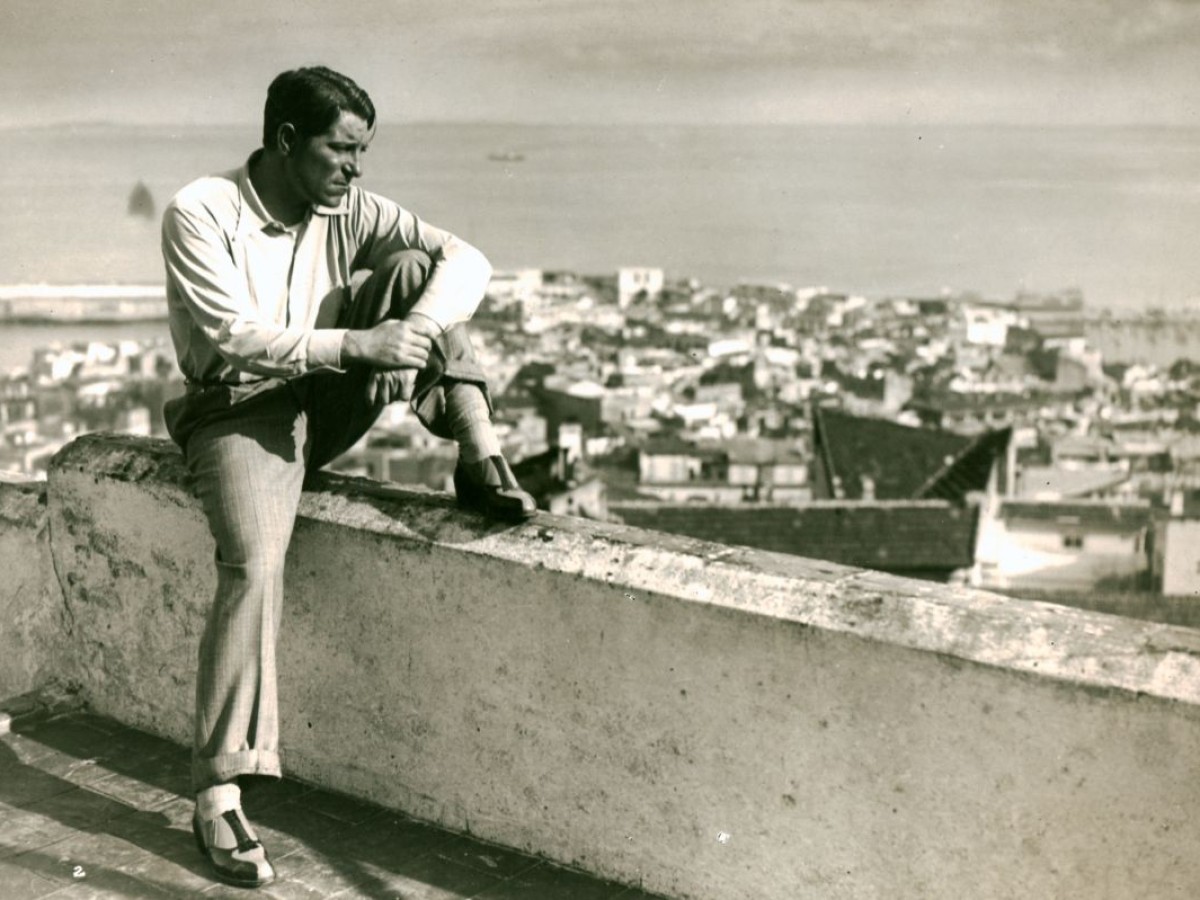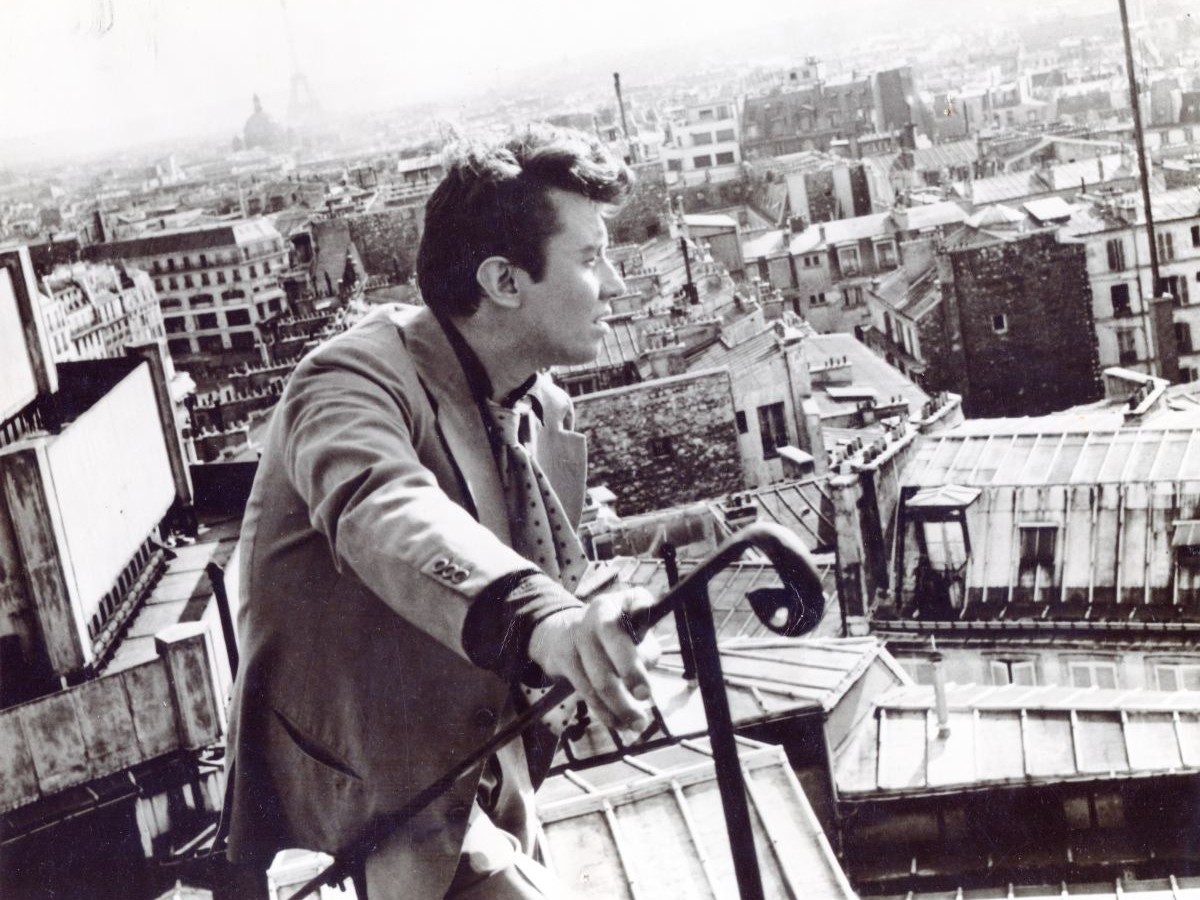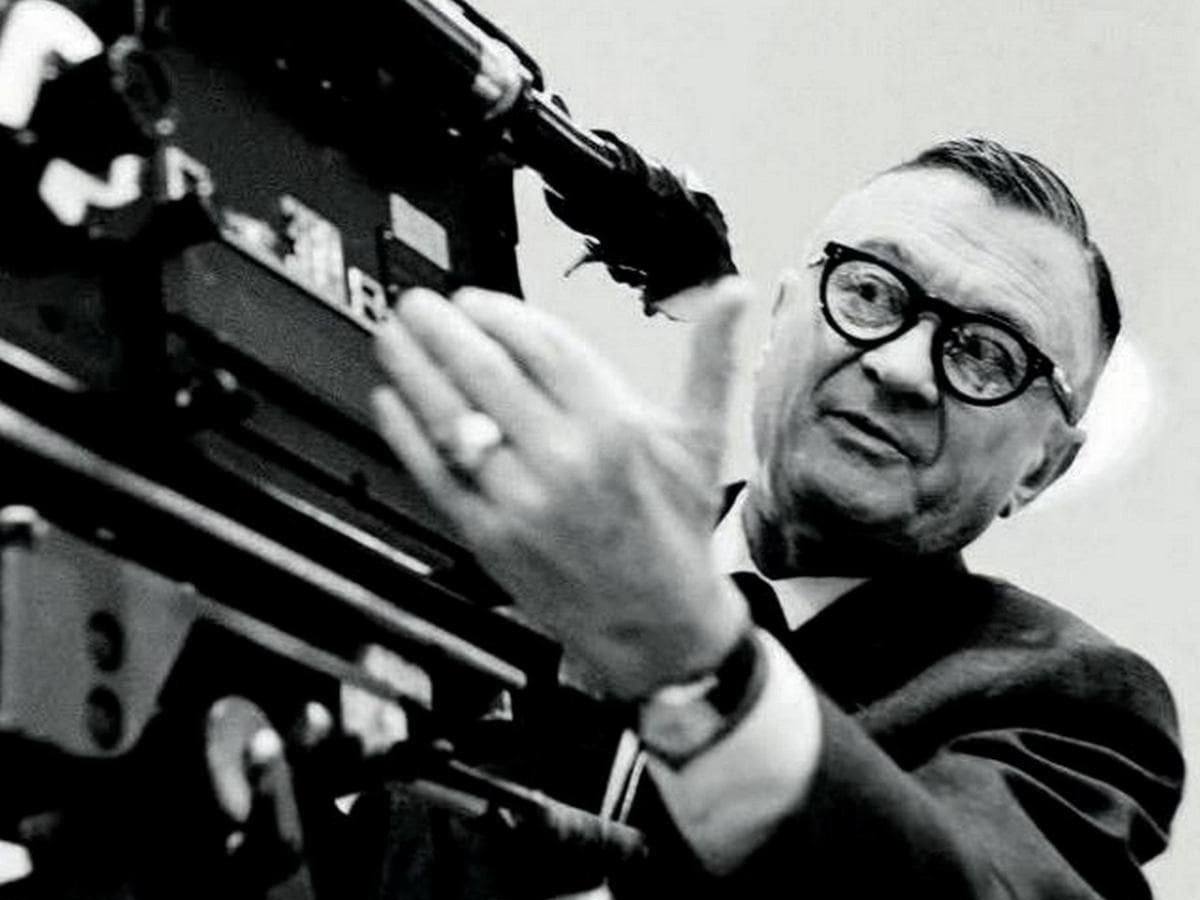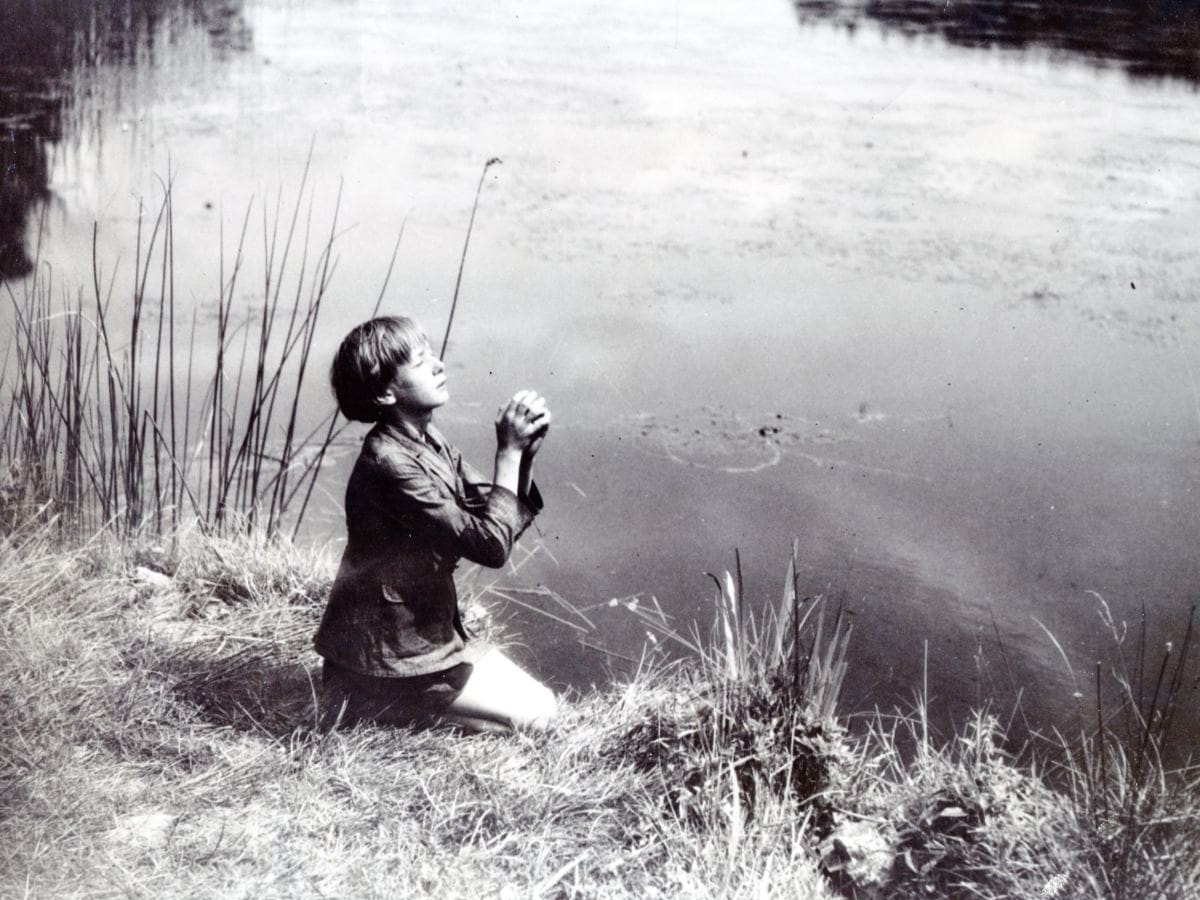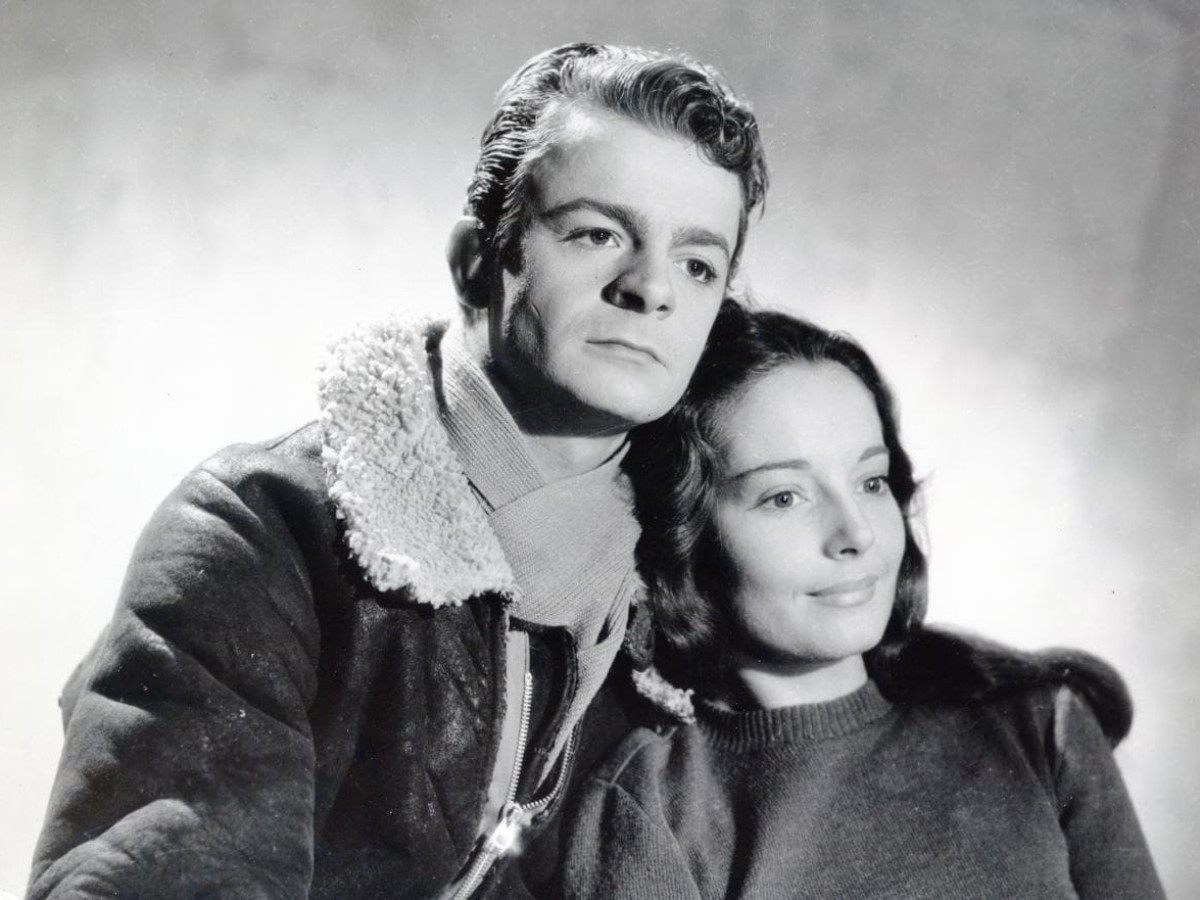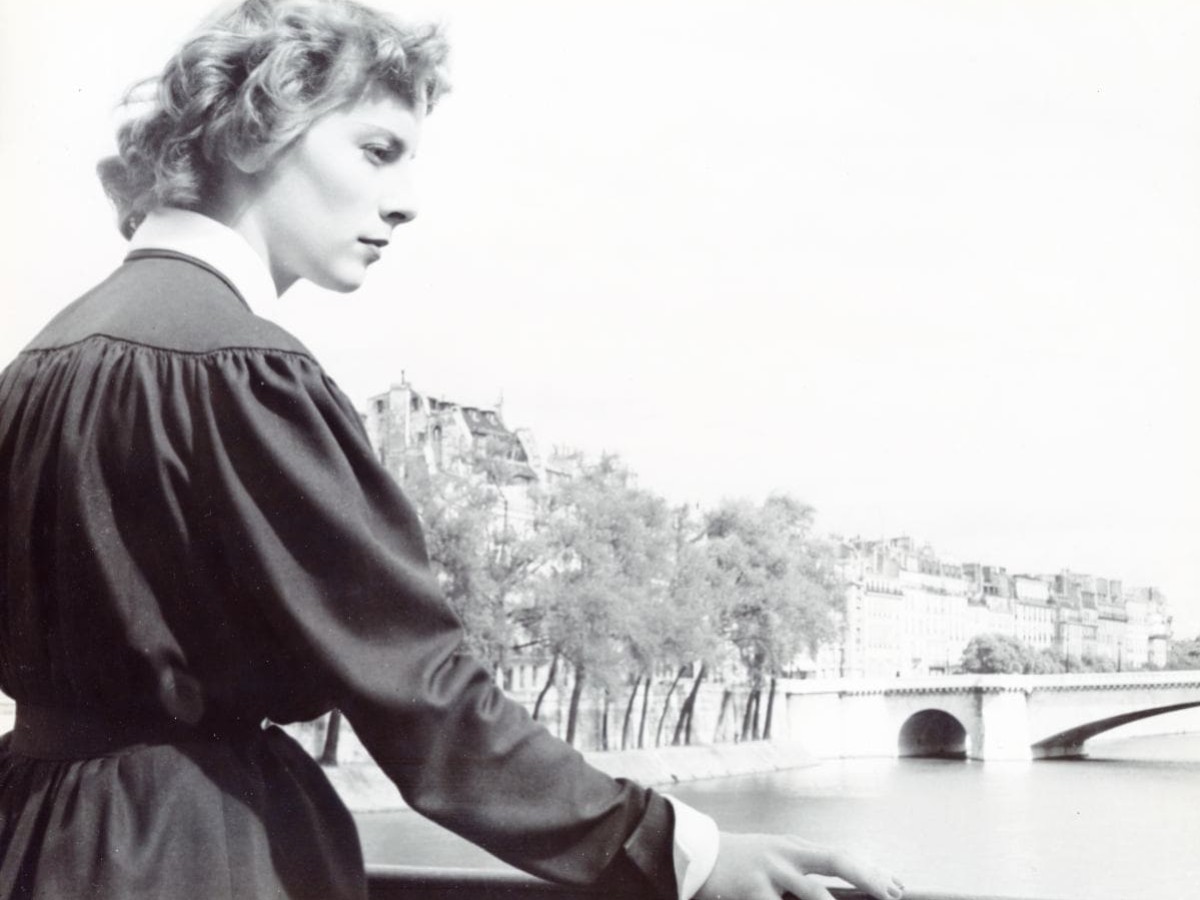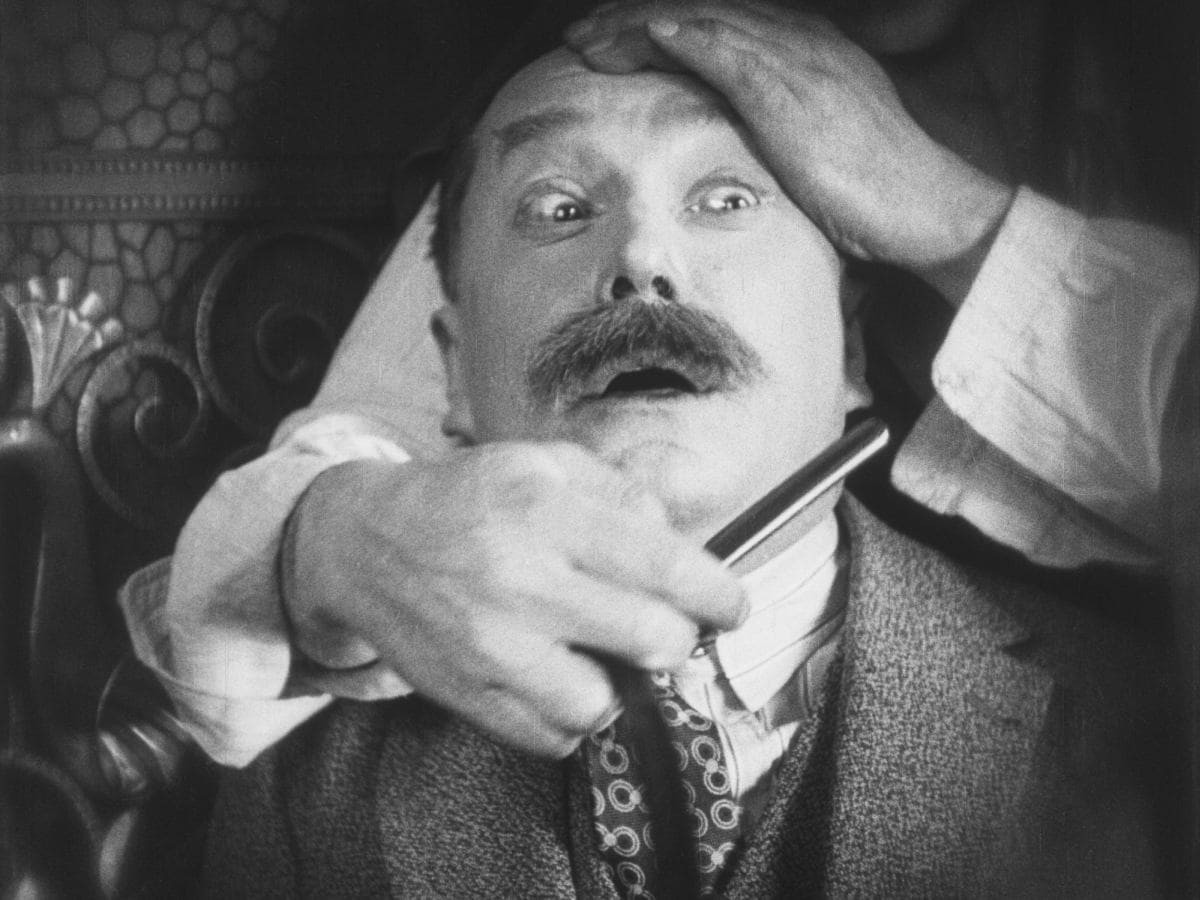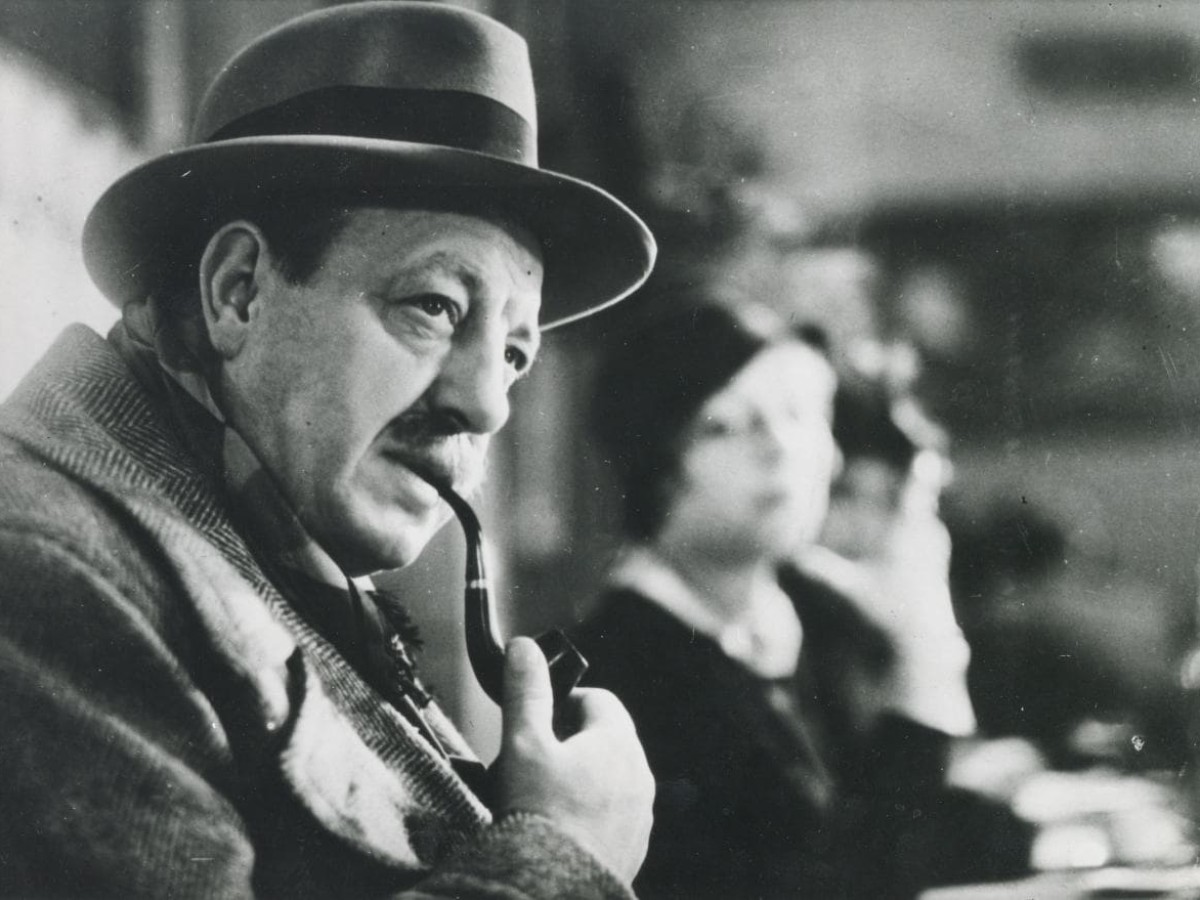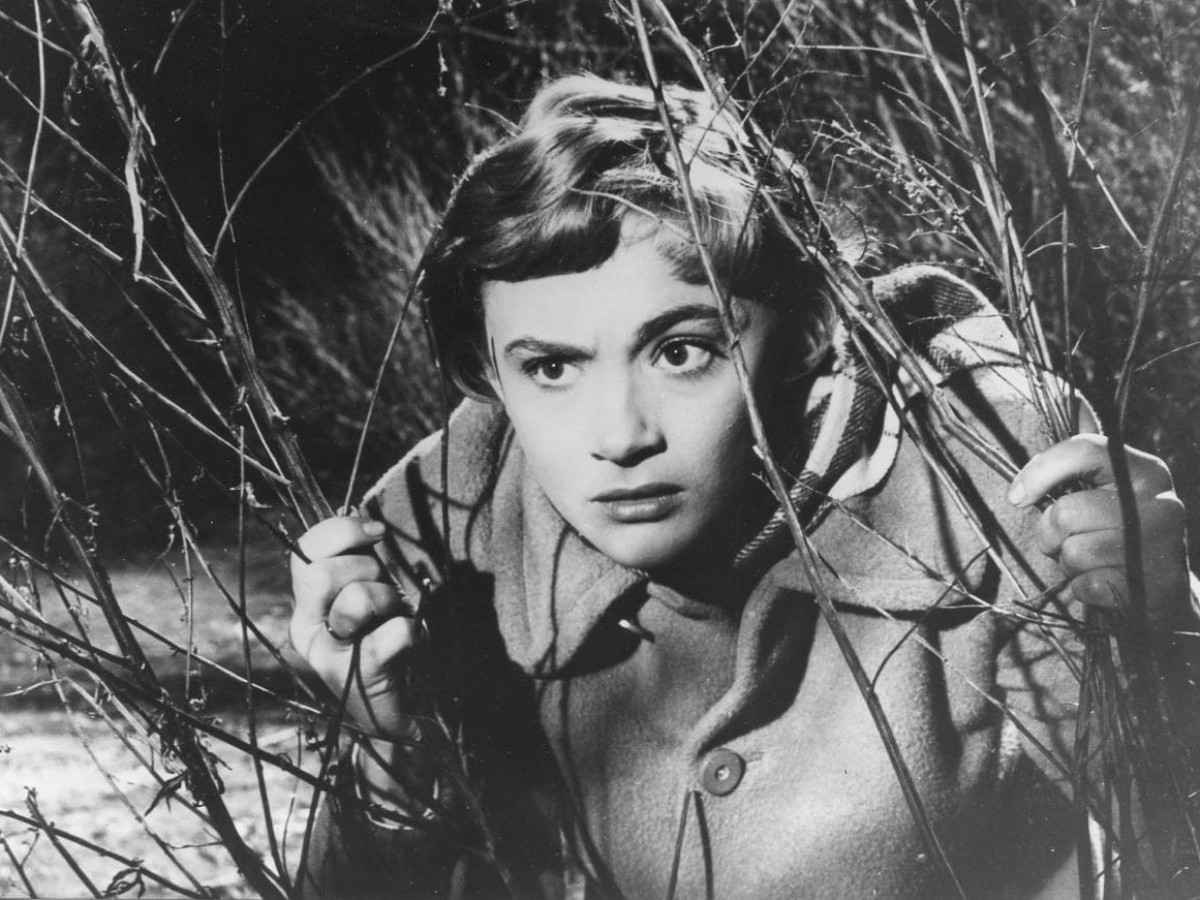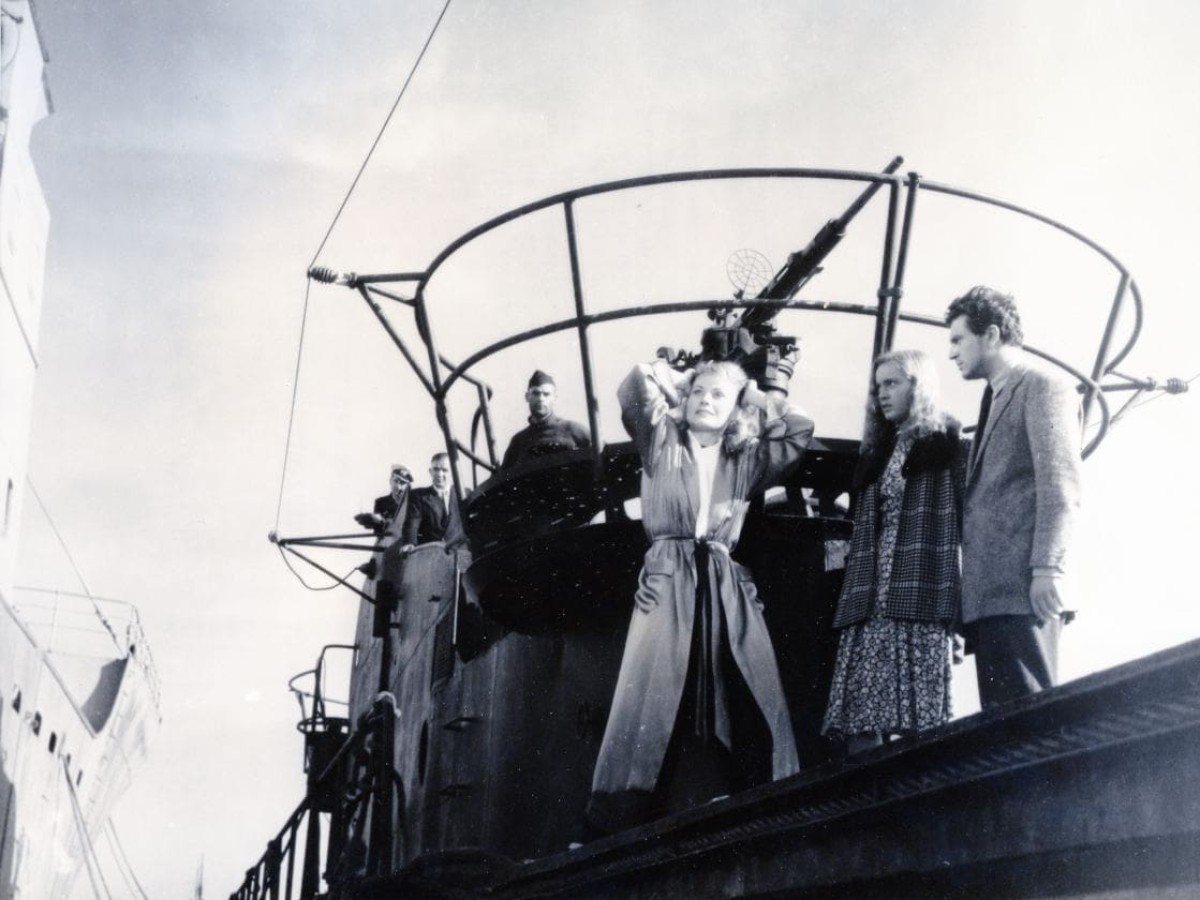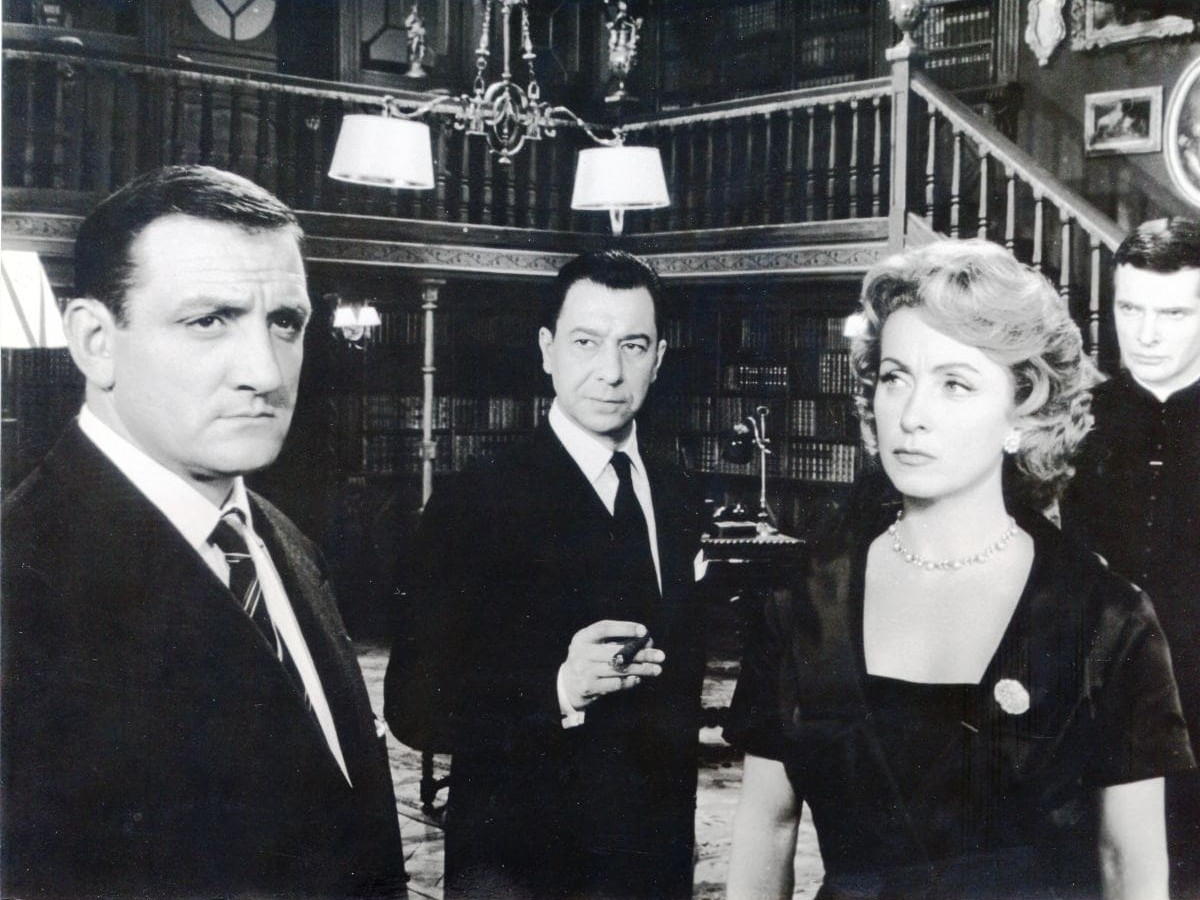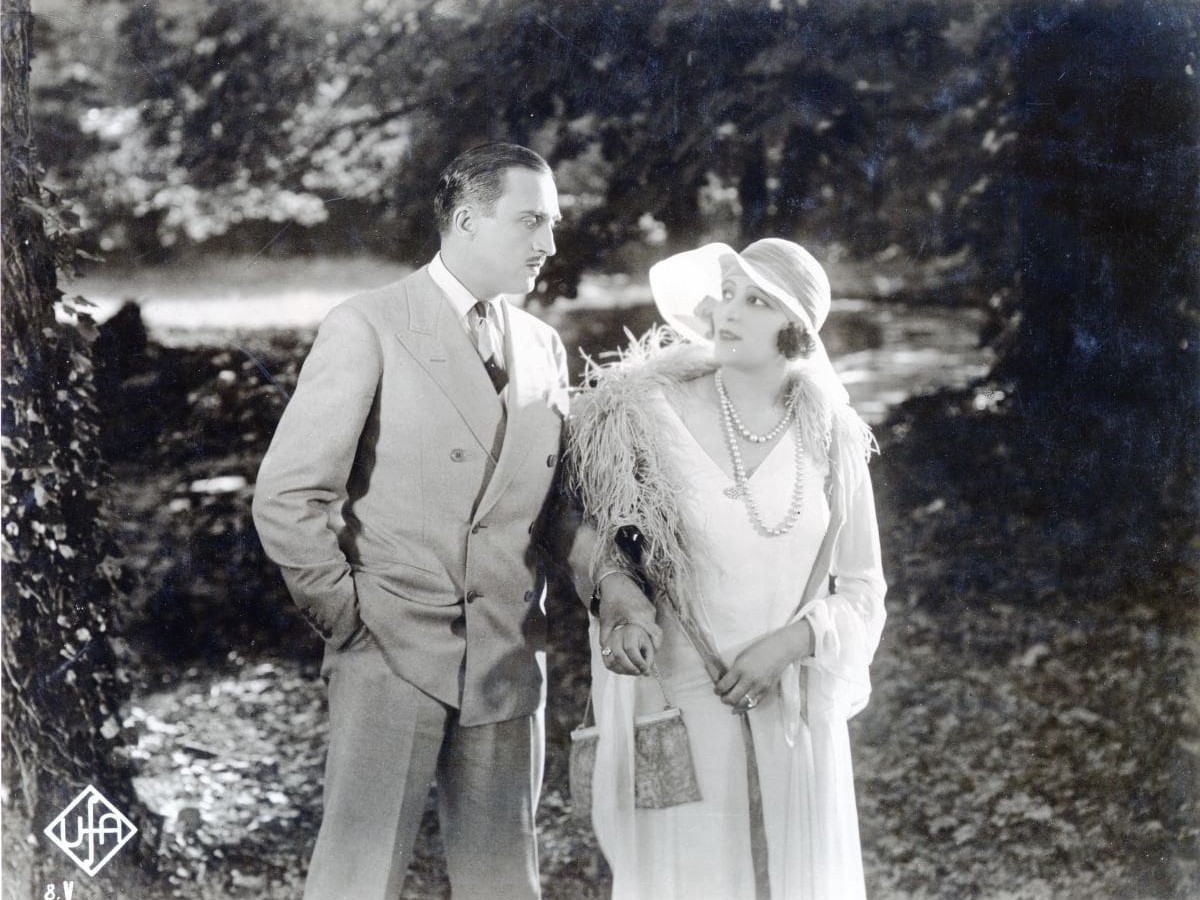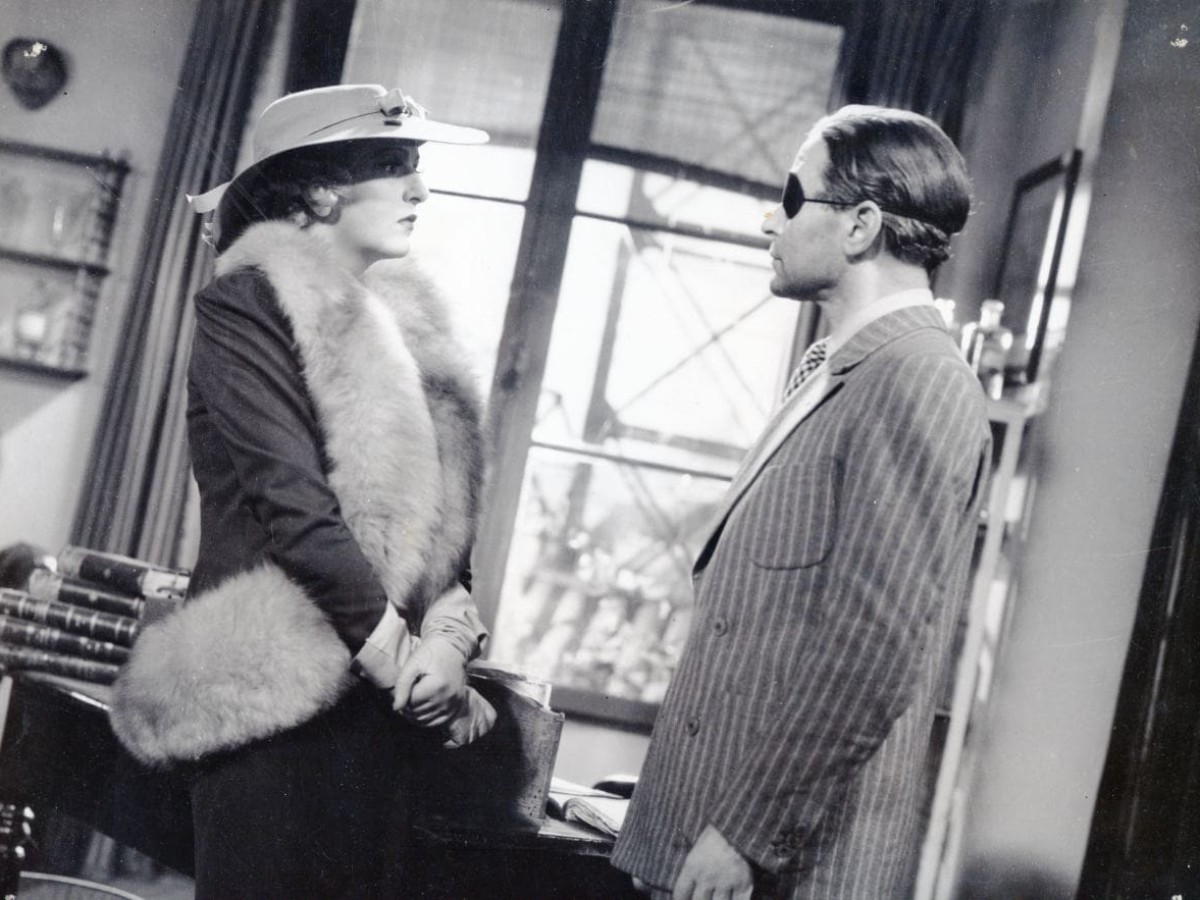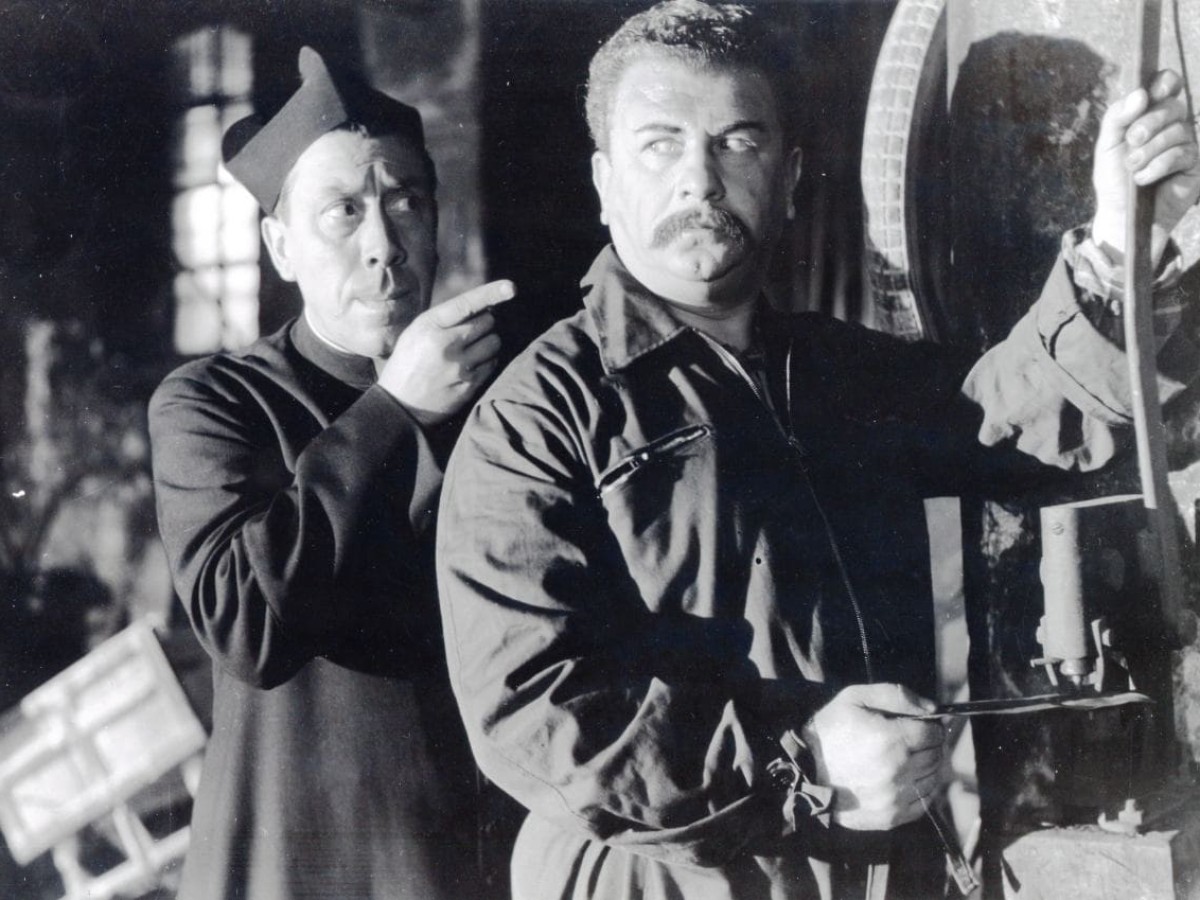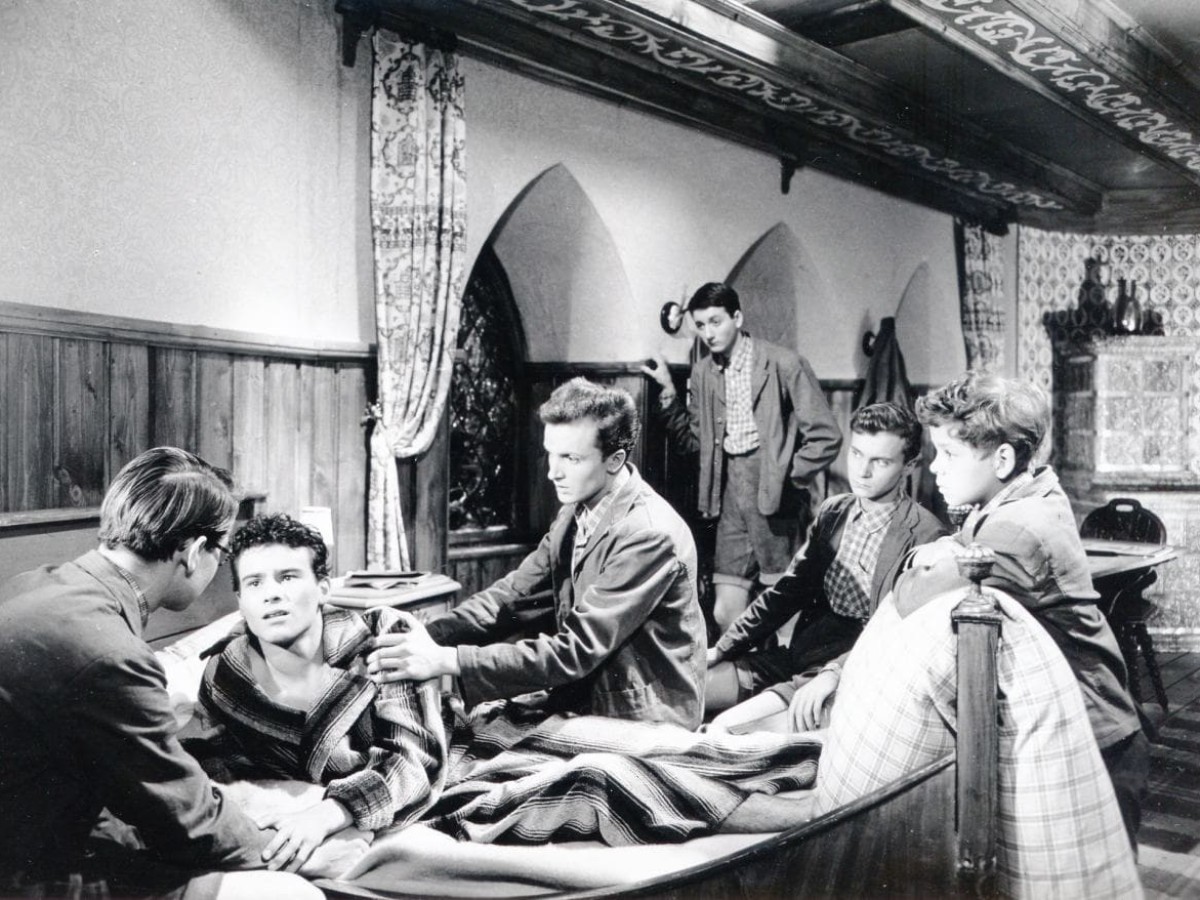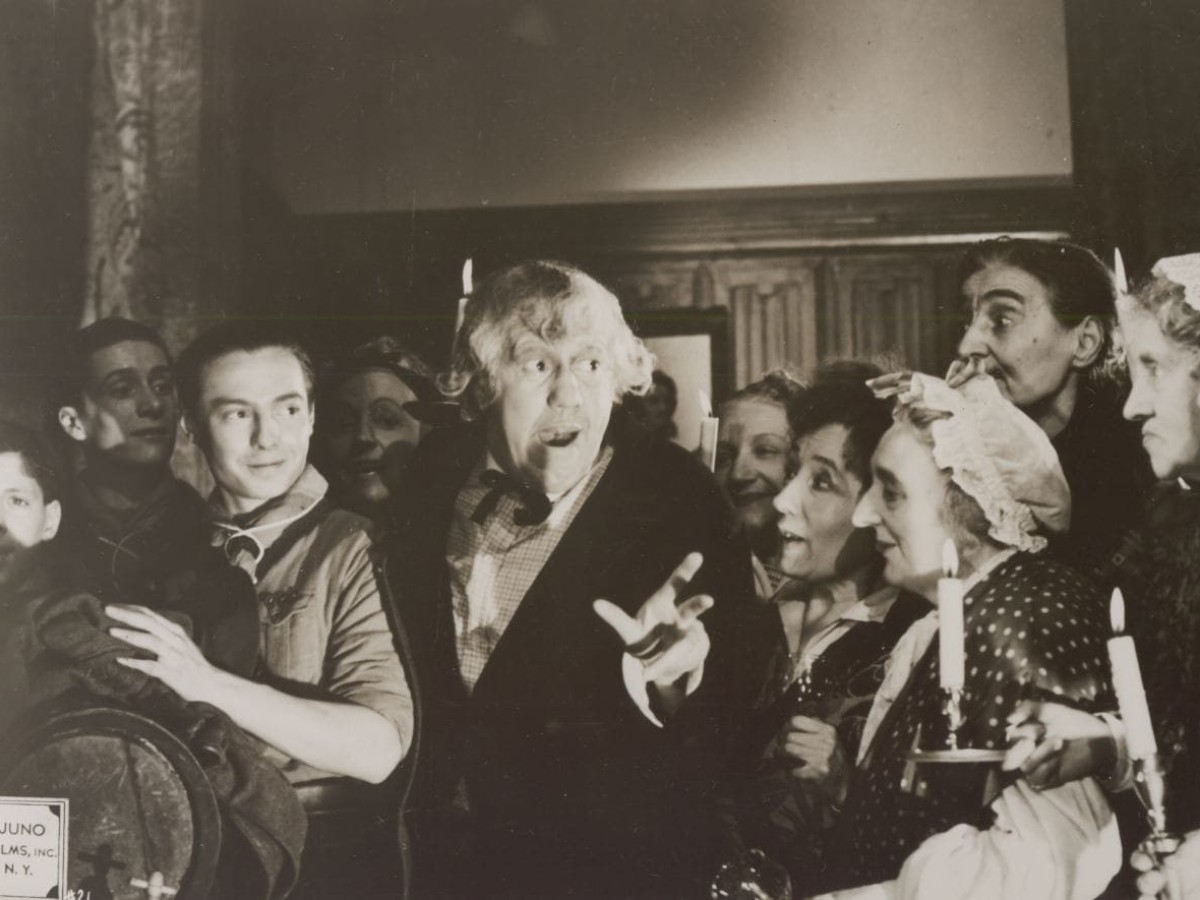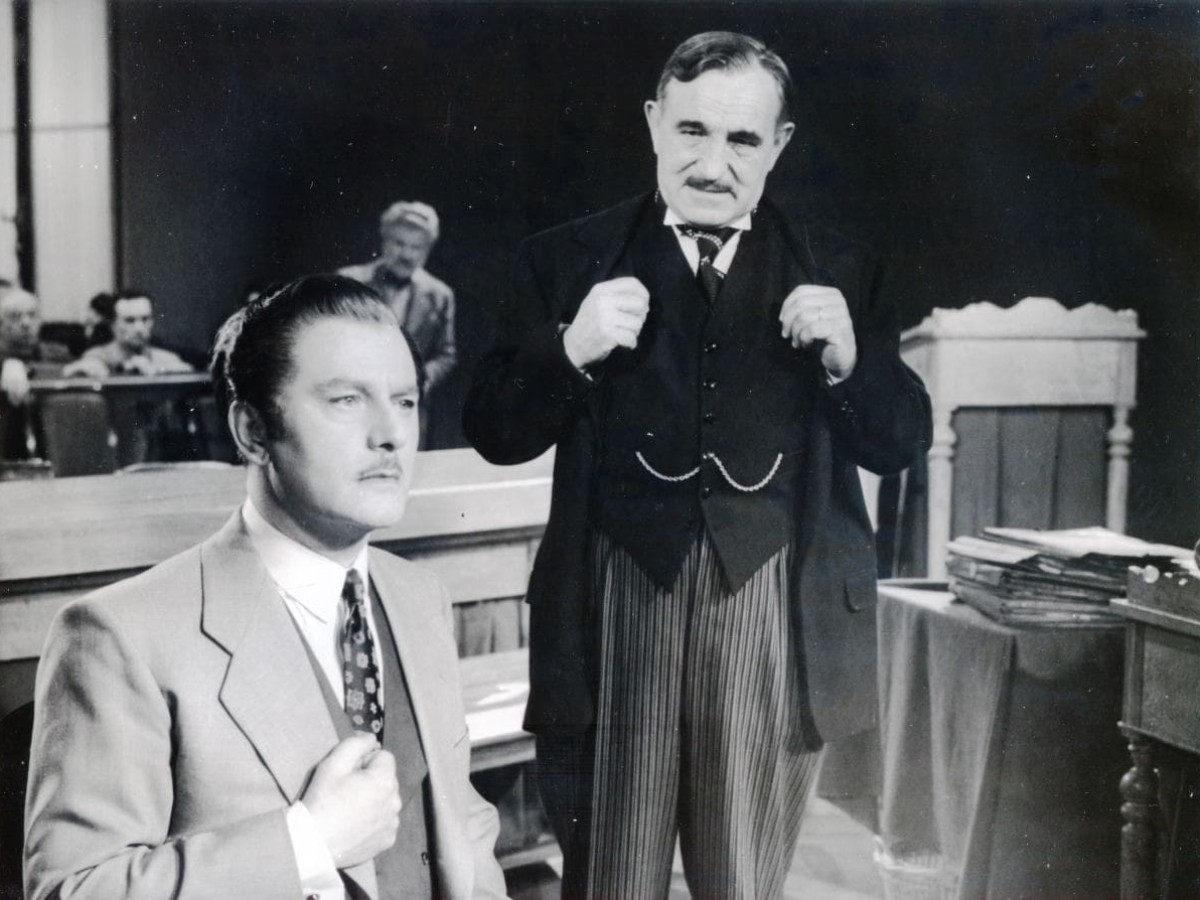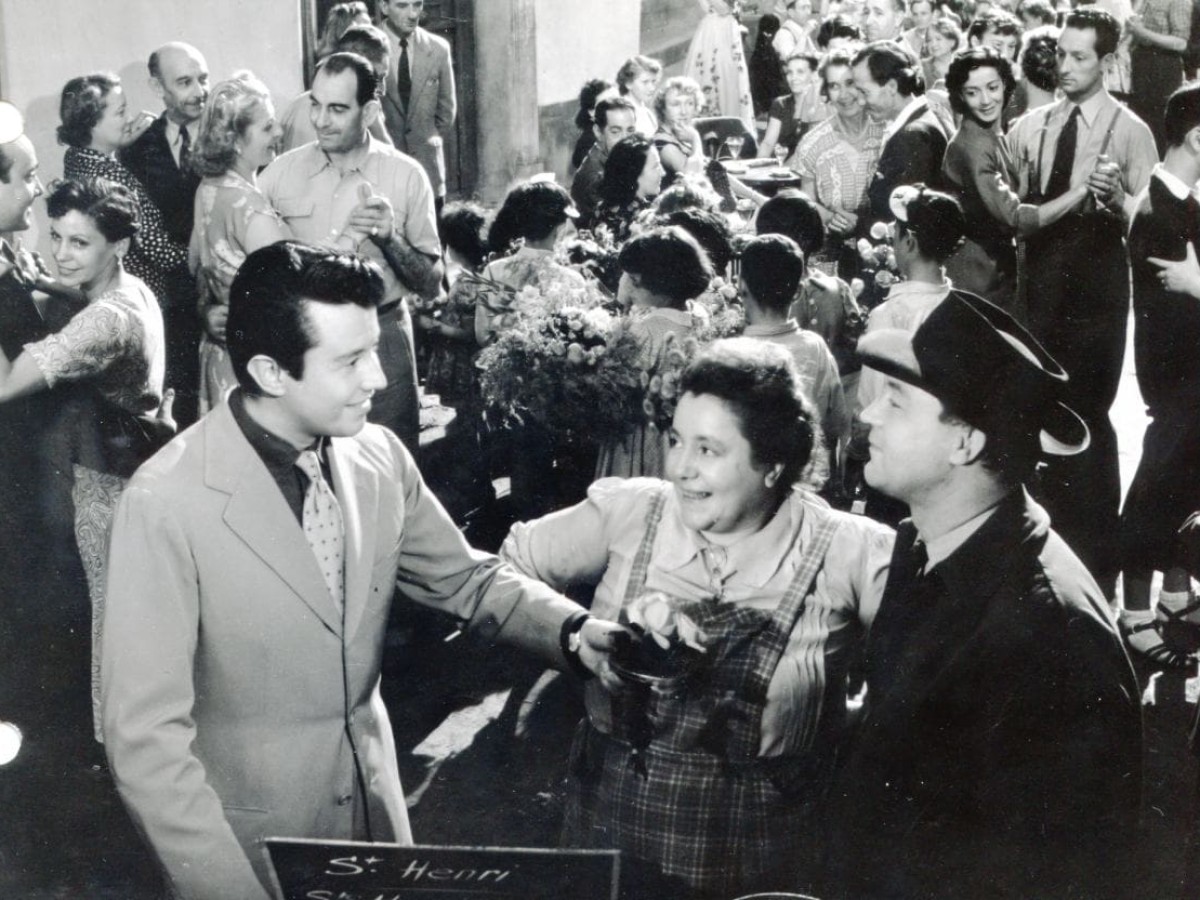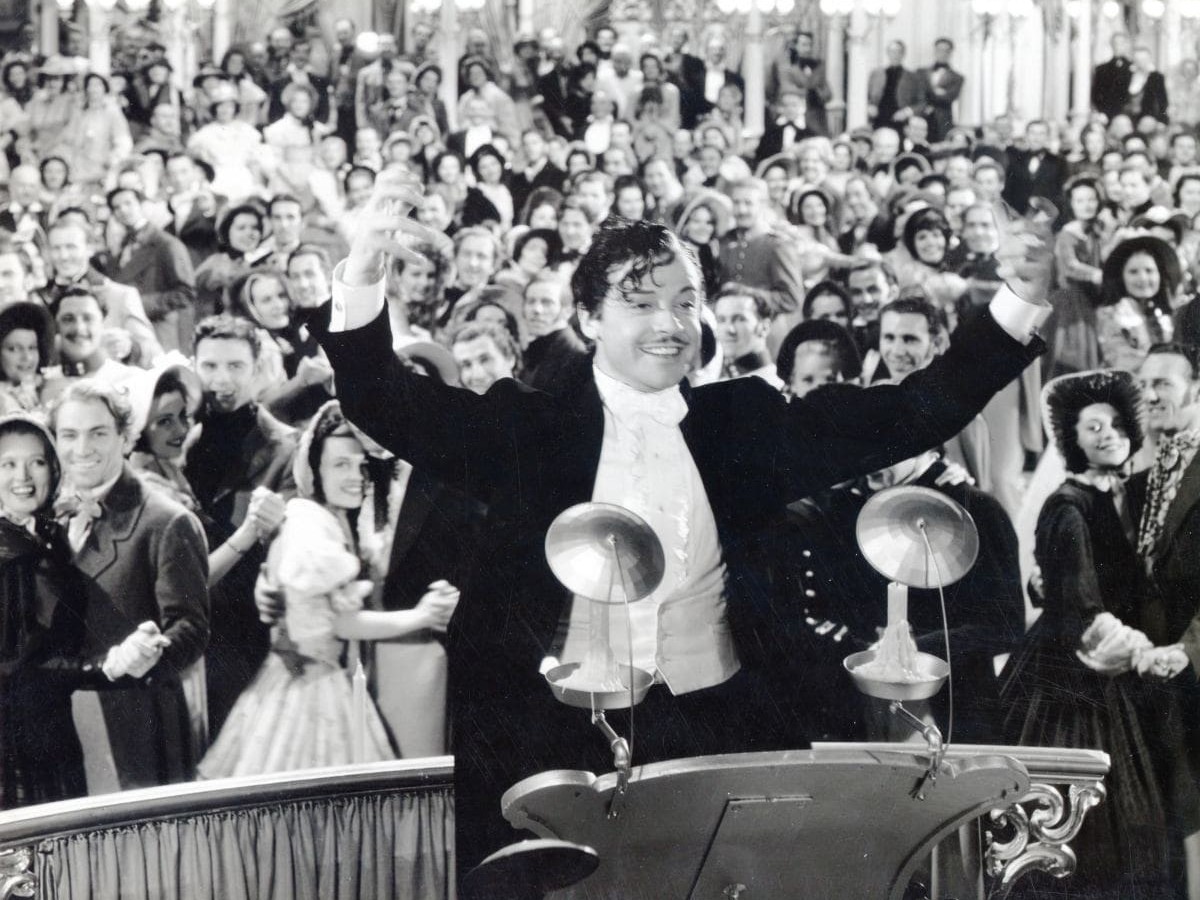Julien Duvivier
Master of Poetic Pessimism
May 15 to July 1, 2024
After the Film Museum's double retrospective of Claude Sautet and Jacques Becker last year invited viewers to rediscover two overlooked masters of French cinema, this year, we take a look at yet another underappreciated key figure of 20th century French film. Julien Duvivier (1896–1967) made a name for himself in the silent era as one of the most exciting directors and over the next five decades up until his death, he created an extraordinary body of work in every respect.
In his 1967 obituary of Duvivier, the director's renowned colleague Jean Renoir bemoaned the death of an expert of the art of film. Today, Renoir belongs to the canonized directors of world film history. Julien Duvivier does not. Why? Duvivier's films have often been characterized as dark and pessimistic, and the artist behind them as a crazy workaholic or taciturn skeptic. In this respect, Duvivier and his films were always good foils to Renoir's films and their light-drenched, shimmering energy. If they were men of the faith instead of filmmakers, perhaps Duvivier would be labeled an unrelenting Franciscan and Renoir a forgiving Augustinian.
Unlike Renoir, Duvivier was always dismissive of claims he was an auteur. He viewed filmmaking as a craft – demanding but learnable. Again and again, colleagues praised Duvivier's sense of precision as well as his ability to coax fantastic performances out of both established stars like Danielle Darrieux and Jean Gabin as well as debuting young actors like Brigitte Auber and Jean-Pierre Léaud.
Duvivier lived film or, as Elke Seel-Viandon reports on the work of her husband Robert Vernay, assistant director on many of Duvivier's films in the 1930s: "Being Duvivier's assistant for ten years had two consequences. First: one really learned one's profession from the ground up. And second: one learned to suffer in silence."
Julien Duvivier's work ranges from his early crime films like his two Simenon adaptations La tête d'un homme (1933) and Panique (1947), as well as Voici le temps des assassins (1956) to playful comedies like La fête à Henriette (1952) and the timeless classic Le petit monde de Don Camillo (1952); from sensitive childhood stories like Poil de carotte (1925, silent version, 1932, sound version) and Boulevard (1960) to melancholic observations of life like La belle équipe (1936) and La fin du jour (1939); from dark dramas like David Golder (1931) and Au royaume des cieux (1949) to episodic films that deftly handle their subjects like Un carnet de bal (1937) and Lydia (1941); from visually impressive homages to earlier eras of cinema like Le mystère de la tour Eiffel (1928) and La charrette fantôme (1940) to uncompromising experimental passages in works that actually belong to classical narrative cinema like Allô Berlin ? Ici Paris ! (1932) and Sous le ciel de Paris coule la Seine (1951) – and sometimes the tone of his work even shifts from one film to the next within the same year.
Duvivier directed films in France, Italy, Czechoslovakia, and the United States, in addition to the Weimar Republic and postwar West Germany. What garnered him respect and esteem from his colleagues in the film industries in the different countries where he worked also had the opposite effect on audiences and critics: Over the course of his career, they lost the ability to categorize him. Sometimes, he seemed to reject being labelled at all – like Alfred Hitchcock (with crime films) or Billy Wilder (with comedies). And the fact that he was considered more of a craftsman and man of routine than a cinematic artist did not seem to affect him much – except that he somehow fell through the cracks of film history.
This was reinforced in the 1950s by the upheaval in French cinema caused by the politique des auteurs at Cahiers du cinéma, introduced by future Nouvelle Vague directors like François Truffaut and Jean-Luc Godard. Their "teacher" André Bazin had already written in 1948: "A film by [...] Julien Duvivier is not recognizable for its style, but pure and simply for its more or less frequent use of entirely classical effects." And for François Truffaut, who certainly had a more nuanced relationship to Duvivier, the director was in retrospect no more than a decent French craftsman with a fondness for American cinema. These evaluations, which one could call disapproving, also found their way into the relevant Anglo-Saxon film lexicons and reference books on auteur theory and took their effect – which continues to this day. Of course, such views miss the multifaceted nature of Duvivier's work, which also functions as a cinematic musical accompaniment to the major cultural, social, and intellectual front and fault lines of his time: polymorphic with regards to his subjects, unpredictable in his stylistic approaches, and impressively nuanced in his portrayal of opposing positions.
Out of the ghost of poetic realism and from film to film, Duvivier developed an increasingly complex worldview in which abrupt violence can always erupt and that nevertheless often leaves a humanistic spark of hope. He was more fascinated by the abysses of human nature than its charms. One person alone can be good, but as a pack, they almost always become evil. Christian symbolism is often present, but Christianity offers no relief for salvation. Solidarity and friendship can make this possible, but just as often prove illusory. And yet, in the nearly 70 films Duvivier made, one rarely feels any bitterness. (Ralph Eue, Frederik Lang / Translation: Ted Fendt)
With a selection of 26 films, the Film Museum dedicates the first Austrian retrospective to the "Master of Poetic Pessimism." Curators Ralph Eue and Frederik Lang will introduce select films on opening weekend, with other films being introduced throughout the series by Brigitte Mayr, Michael Omasta, and Christoph Huber.
In collaboration with Institut français d'Autriche and SYNEMA – Gesellschaft für Film und Medien
After the Film Museum's double retrospective of Claude Sautet and Jacques Becker last year invited viewers to rediscover two overlooked masters of French cinema, this year, we take a look at yet another underappreciated key figure of 20th century French film. Julien Duvivier (1896–1967) made a name for himself in the silent era as one of the most exciting directors and over the next five decades up until his death, he created an extraordinary body of work in every respect.
In his 1967 obituary of Duvivier, the director's renowned colleague Jean Renoir bemoaned the death of an expert of the art of film. Today, Renoir belongs to the canonized directors of world film history. Julien Duvivier does not. Why? Duvivier's films have often been characterized as dark and pessimistic, and the artist behind them as a crazy workaholic or taciturn skeptic. In this respect, Duvivier and his films were always good foils to Renoir's films and their light-drenched, shimmering energy. If they were men of the faith instead of filmmakers, perhaps Duvivier would be labeled an unrelenting Franciscan and Renoir a forgiving Augustinian.
Unlike Renoir, Duvivier was always dismissive of claims he was an auteur. He viewed filmmaking as a craft – demanding but learnable. Again and again, colleagues praised Duvivier's sense of precision as well as his ability to coax fantastic performances out of both established stars like Danielle Darrieux and Jean Gabin as well as debuting young actors like Brigitte Auber and Jean-Pierre Léaud.
Duvivier lived film or, as Elke Seel-Viandon reports on the work of her husband Robert Vernay, assistant director on many of Duvivier's films in the 1930s: "Being Duvivier's assistant for ten years had two consequences. First: one really learned one's profession from the ground up. And second: one learned to suffer in silence."
Julien Duvivier's work ranges from his early crime films like his two Simenon adaptations La tête d'un homme (1933) and Panique (1947), as well as Voici le temps des assassins (1956) to playful comedies like La fête à Henriette (1952) and the timeless classic Le petit monde de Don Camillo (1952); from sensitive childhood stories like Poil de carotte (1925, silent version, 1932, sound version) and Boulevard (1960) to melancholic observations of life like La belle équipe (1936) and La fin du jour (1939); from dark dramas like David Golder (1931) and Au royaume des cieux (1949) to episodic films that deftly handle their subjects like Un carnet de bal (1937) and Lydia (1941); from visually impressive homages to earlier eras of cinema like Le mystère de la tour Eiffel (1928) and La charrette fantôme (1940) to uncompromising experimental passages in works that actually belong to classical narrative cinema like Allô Berlin ? Ici Paris ! (1932) and Sous le ciel de Paris coule la Seine (1951) – and sometimes the tone of his work even shifts from one film to the next within the same year.
Duvivier directed films in France, Italy, Czechoslovakia, and the United States, in addition to the Weimar Republic and postwar West Germany. What garnered him respect and esteem from his colleagues in the film industries in the different countries where he worked also had the opposite effect on audiences and critics: Over the course of his career, they lost the ability to categorize him. Sometimes, he seemed to reject being labelled at all – like Alfred Hitchcock (with crime films) or Billy Wilder (with comedies). And the fact that he was considered more of a craftsman and man of routine than a cinematic artist did not seem to affect him much – except that he somehow fell through the cracks of film history.
This was reinforced in the 1950s by the upheaval in French cinema caused by the politique des auteurs at Cahiers du cinéma, introduced by future Nouvelle Vague directors like François Truffaut and Jean-Luc Godard. Their "teacher" André Bazin had already written in 1948: "A film by [...] Julien Duvivier is not recognizable for its style, but pure and simply for its more or less frequent use of entirely classical effects." And for François Truffaut, who certainly had a more nuanced relationship to Duvivier, the director was in retrospect no more than a decent French craftsman with a fondness for American cinema. These evaluations, which one could call disapproving, also found their way into the relevant Anglo-Saxon film lexicons and reference books on auteur theory and took their effect – which continues to this day. Of course, such views miss the multifaceted nature of Duvivier's work, which also functions as a cinematic musical accompaniment to the major cultural, social, and intellectual front and fault lines of his time: polymorphic with regards to his subjects, unpredictable in his stylistic approaches, and impressively nuanced in his portrayal of opposing positions.
Out of the ghost of poetic realism and from film to film, Duvivier developed an increasingly complex worldview in which abrupt violence can always erupt and that nevertheless often leaves a humanistic spark of hope. He was more fascinated by the abysses of human nature than its charms. One person alone can be good, but as a pack, they almost always become evil. Christian symbolism is often present, but Christianity offers no relief for salvation. Solidarity and friendship can make this possible, but just as often prove illusory. And yet, in the nearly 70 films Duvivier made, one rarely feels any bitterness. (Ralph Eue, Frederik Lang / Translation: Ted Fendt)
With a selection of 26 films, the Film Museum dedicates the first Austrian retrospective to the "Master of Poetic Pessimism." Curators Ralph Eue and Frederik Lang will introduce select films on opening weekend, with other films being introduced throughout the series by Brigitte Mayr, Michael Omasta, and Christoph Huber.
In collaboration with Institut français d'Autriche and SYNEMA – Gesellschaft für Film und Medien
In 2023, SYNEMA (Vienna) published the accompanying book Julien Duvivier. Virtuoses Kinohandwerk, edited by Ralph Eue and Frederik Lang. With contributions by Dominik Graf, Heike Klapdor, Gerhard Midding, Ben McCann, Peter Nau, Marie Epstein and the editors as well as an annotated filmography. German
Related materials
For each series, films are listed in screening order.
